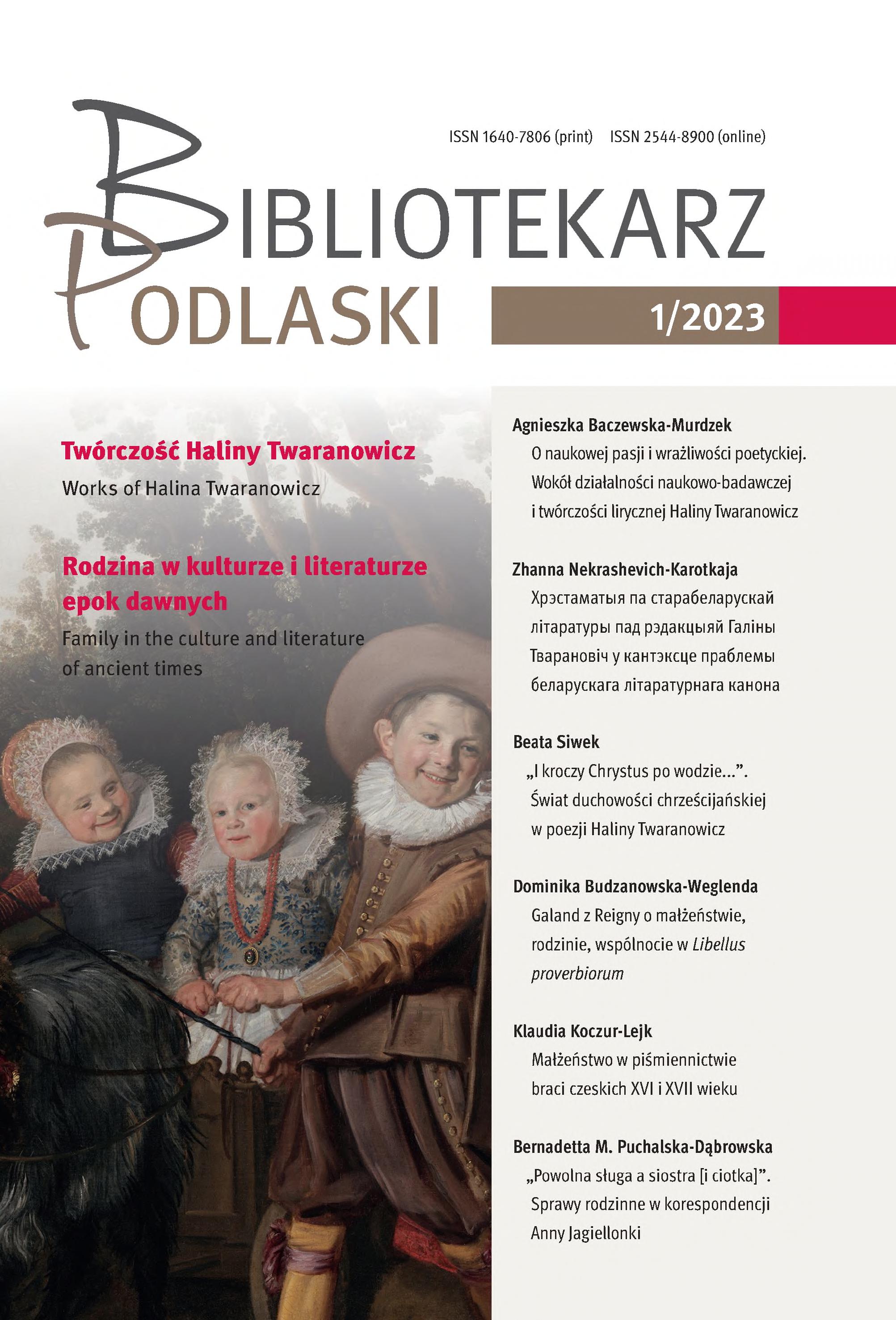Abstract
As a theatrical phenomenon, verbatim originated in Great Britain in the late 1980s
and early 1990s. Authors using this method paid special attention to serious social problems, for example, discrimination against women, racial inequality, terrorism,
and others. At the same time, the basis of this direction became the documentary and focus on the life of the individual. In the post-Soviet space, the documentary theater turned to issues that were relevant to the former Soviet republics. The article analyzes two works (Patris and Мабыць?) by Belarusian playwrights – Siergei Ancelevich, Dmitry Bogosławski, Wiktor Krasowski) –who, using the verbatim method, try to understand the specificity of the mentality of contemporary Belarusians. Looking at the interviews presented in the works through the prism of sociological research, one can see how various concepts of Belarusian identity are implemented in theatrical space, how the homo soveticus model and the East-West dichotomy function in contemporary Belarus, what difficulties Belarusians encounter when choosing communication in the native language. The works presented in the article can be regarded as one of the first attempts to move from passive to an active awareness of one’s own national identity.
References
Ancelevič S., Bogoslavskij D., Krasovskij V., Patris, Centr belorusskoj dramaturgii. Biblioteka, http://dramacenter.org/library/bogoslavskij-dmitrij/ [dostęp: 1.11.2022].
Bogoslavskij D., Marčenko A. i dr., Mabyć?. Elektroniczna wersja tekstu dostarczona przez D. Bogosławskiego.
Bolotân I., O drame v sovremennom teatre: verbatim, „Voprosy literatury” 2004, №5.
Breskaja О., Religijny obywatel czy wierzący Białorusin? Dwa dziesięciolecia badań nad tożsamością religijną Białorusinów, [w:] Tożsamości zbiorowe Białorusinów, red. R. Radzik, Lublin 2012.
Gomanûk N., Sociologičeskij potencial verbatim-teatra, [w:] Metodologìâ, teorìâ ta praktika socìologìčnogo analìzu sučasnogo suspìlʹstva: Zbìrnik naukovih pracʹ, t. 1, red. N. Gomanûk, Harkìv 2012.
Gromyko L., Dmitrij Bogoslavskij: „Teatr dlâ menâ – novyj opyt”, https://gromykotheatre.org/2019/12/24/дмитрийбогославскийтеатр-для-меня [dostęp: 1.11.2022].
Hejmej A., Komparatystyka. Studia literackie – studia kulturowe, Kraków 2013.
Joffe G., Długotrwałe poszukiwania białoruskiej tożsamości, [w:] Tożsamości zbiorowe Białorusinów, red. R. Radzik, Lublin 2012.
Kto estʹ kto v minskih teatrah, https://citydog.io/long/kto-est-kto-teatr [dostęp: 1.11.2022].
Lachman M., Brzytwą po oczach. Młodzi doświadczeni w angielskim i irlandzkim dramacie lat dziewięćdziesiątych, Kraków 2007.
Radzik R., Rosyjski imperializm wspólnotowy, Lublin 2016.
Ugarov M., Antislovarʹ M. Ugarova, https://teatrdoc.ru/doc [dostęp: 1.11.2022].
Waszczyńska K., Białoruska tożsamość narodowa w świetle wypowiedzi mieszkańców Mińska i okolic, [w:] Tożsamości zbiorowe Białorusinów, red. R. Radzik, Lublin 2012.

This work is licensed under a Creative Commons Attribution-ShareAlike 4.0 International License.
Copyright (c) 2023 Anastasia Gulina


